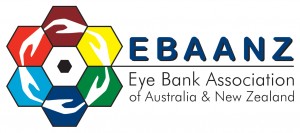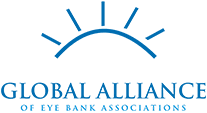 PERTH: Yesterday, Members of EBAANZ ratified Australia and New Zealand’s first regional Bioethics Framework concerning Human Tissue for Ocular Application, during their annual meeting held in conjunction with the Corneal Society, at the Perth Convention Centre.
PERTH: Yesterday, Members of EBAANZ ratified Australia and New Zealand’s first regional Bioethics Framework concerning Human Tissue for Ocular Application, during their annual meeting held in conjunction with the Corneal Society, at the Perth Convention Centre.
Inspired by the Declaration of Istanbul – which was developed to support ethical practice and policy in human organ transplantation internationally – and encouraged by the World Health Organization, EBAANZ members collaborated with corneal surgeons, policy advisers of the Royal Australian and New Zealand College of Ophthalmologists, and obstetric representatives, to develop a framework relevant to the ANZ eye bank community and the wider eye care and donor communities. Dr Dominique Martin, bioethicist at the University of Melbourne’s Centre for Health Equity also collaborated on the project.
“The Framework” says EBAANZ Acting-Chair, Dr Graeme Pollock, “focuses on 9 key strategies which are designed to guide care and professional conduct while completing donor consent, tissue preparation and tissue distribution aspects of our cornea, sclera and amnion tissue custodian service.
“The Framework will support our professionals to work together to address tissue needs within our population and provide guidelines to surgeons and eye banks who are approached by colleagues from other countries for humanitarian support.
“Our natural instinct is to always help others but we needed some guidelines for decisions about how and where we should help. It also meant that we were ensuring that the generous gifts of ANZ donors were being respected and that our priority remains the ANZ recipients.
“As a collective Association, we are aware of some of the issues facing other countries – which we are to-date blessed to not experience, so we also wanted to be pro-active and ensure that we continued to up-hold the standards and expectations of ANZ donors and recipients and ensure our services are not hampered by external factors”, says Dr Pollock.
The Framework’s key recommendations include the: activities and wellbeing of the donor, particularly the vulnerable donor; ethical collaboration and interaction with the local, national and global eye care communities and governments; the necessity for policy and training; tissue distribution and prioritization – especially during periods of insufficient supply; prevention of profiteering, trafficking and tampering; and accountability and effective leadership.
Eye Bank Association of Australia & New Zealand (EBAANZ) is a not-for-profit organisation, and the peak body for eye donation and transplantation services in Australia and New Zealand. EBAANZ is dedicated to helping restore sight, providing national and international leadership and standards for eye banking, and advocating for the eye banking sector by promoting the unique requirements of eye banks, and facilitating the sharing of information and expertise amongst EBAANZ members. www.ebaanz.org
